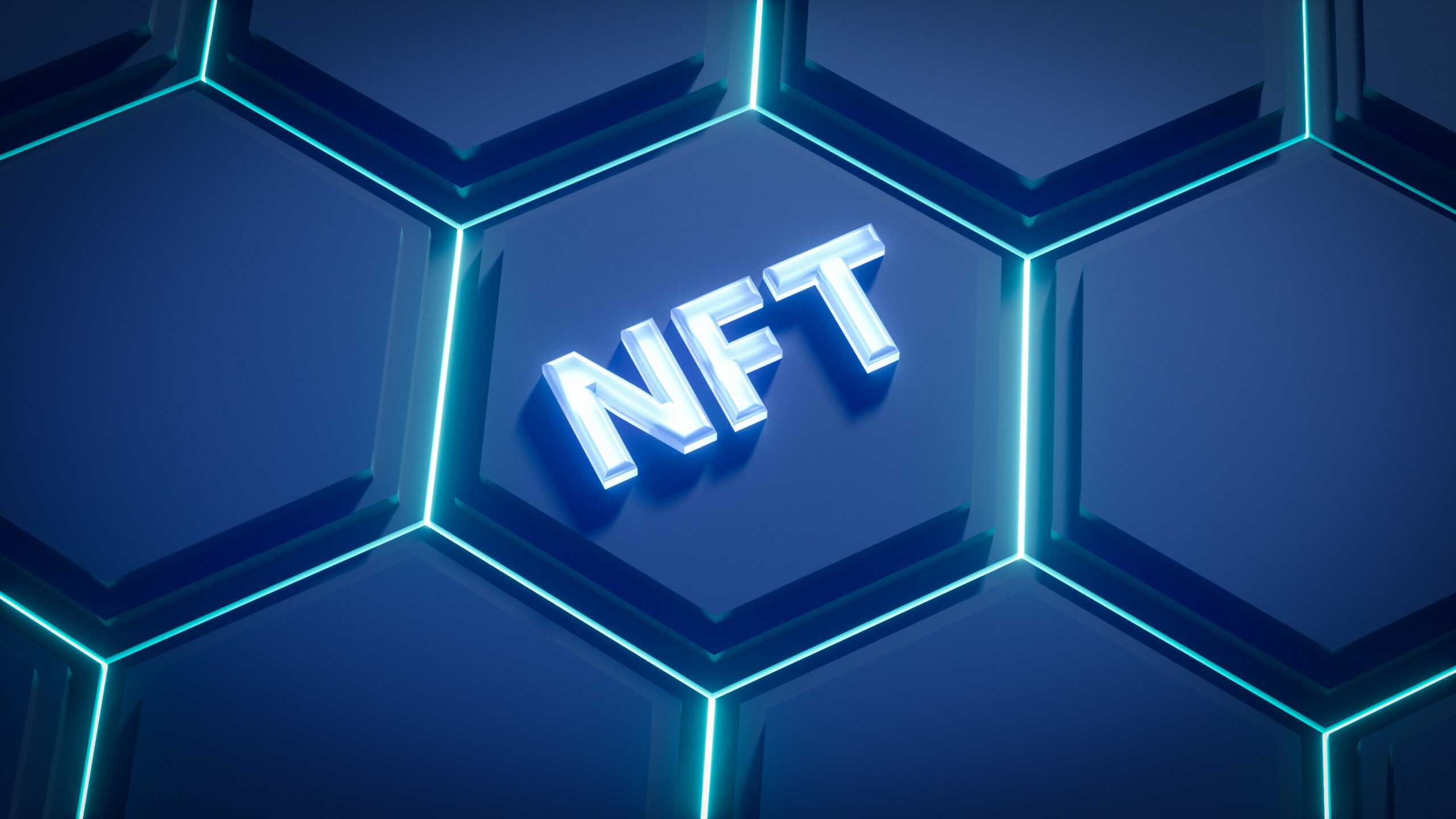Revolutionizing E-commerce Loyalty Programs: The Role of NFT Integration
September 28, 2025 | by qqvmedia.com


Understanding NFTs and Their Appeal in E-commerce
Non-fungible tokens (NFTs) represent a revolutionary form of digital assets that have captured the attention of various sectors, including e-commerce. Unlike traditional cryptocurrencies such as Bitcoin or Ethereum, which are fungible and can be exchanged one-for-one, NFTs are unique digital items that cannot be replicated. Each NFT has distinct characteristics that certify its originality and ownership, often regarded as proof of authenticity. This uniqueness is what sets NFTs apart, allowing them to convey value based on their rarity and desirability.
The underpinning technology of NFTs is blockchain, a decentralized ledger system that ensures transparency and security in transactions. By utilizing blockchain, the ownership history and provenance of an NFT can be easily tracked, providing assurance to buyers about the legitimacy of the digital asset. This transparency is particularly appealing in e-commerce, where concerns about counterfeit products are prevalent. The decentralized nature of blockchain technology means that NFTs are not tied to a single entity, offering greater control and trust for the participants in the marketplace.
The appeal of NFTs in various industries is evidenced by numerous successful projects. For example, digital art platforms like OpenSea and Rarible have facilitated extensive buying and selling of NFT artworks, while initiatives such as NBA Top Shot have allowed fans to collect digital trading cards of their favorite basketball players. These projects illustrate how NFTs can create a unique user experience that fosters engagement and loyalty, a critical aspect in the current competitive e-commerce landscape.
As these digital assets continue to evolve, the potential applications of NFTs in e-commerce, particularly within loyalty programs, become increasingly apparent. Their capability to provide exclusive benefits and reward customers with unique digital assets offers a fresh approach to enhancing customer retention and satisfaction, setting the stage for a transformation in the way brands connect with consumers.
How NFTs Can Enhance E-commerce Loyalty Programs
The integration of non-fungible tokens (NFTs) into e-commerce loyalty programs represents a transformative shift in how brands engage with their customers. By harnessing the unique properties of NFTs, businesses can offer innovative rewards that not only captivate but also retain customers over the long term. One of the primary advantages of NFTs is their ability to offer exclusivity; customers can earn unique digital collectibles that symbolize their loyalty, fostering a deeper emotional connection with the brand.
Moreover, NFTs empower brands to create tiered loyalty rewards that cater to varying levels of customer engagement. For instance, a customer who consistently shops at a particular brand might receive access to limited edition NFTs, which can subsequently be used for exclusive offers or experiences. This tiered system not only incentivizes customers to improve their engagement but also instills a sense of achievement, as they work toward obtaining rare or limited items. Through storytelling and uniqueness, brands can further enhance the emotional appeal of these rewards, thereby improving customer retention rates.
Personalization is another significant advantage of NFT integration in e-commerce. Brands can analyze customer behavior and preferences to create personalized NFT rewards that resonate with individual users. For example, a brand might offer personalized NFTs that reflect a customer’s purchase history or preferences, allowing customers to feel recognized not just as buyers, but as valued members of a community. Such engagements elevate the shopping experience into a more immersive and interactive journey, which is crucial in retaining customer loyalty.
Leading brands have already begun to implement these strategies, successfully demonstrating the potential of NFTs to revolutionize loyalty programs. By capitalizing on the benefits of NFTs, e-commerce businesses can create more engaging, exclusive, and personalized experiences that strengthen customer loyalty and significantly impact brand retention.
Challenges and Considerations for Implementing NFTs in Loyalty Programs
The integration of Non-Fungible Tokens (NFTs) into loyalty programs presents a multitude of challenges for businesses. Foremost among these is the technological complexity inherent in launching an NFT-based rewards system. Many organizations may lack the necessary infrastructure or technical expertise to successfully deploy blockchain technology and manage NFT transactions efficiently. This necessitates a thorough assessment of existing systems and possibly significant investment in new technologies to enable seamless operation.
Regulatory concerns are another pivotal issue that businesses must navigate. The legal landscape surrounding digital assets, including NFTs, is continually evolving. Regulations pertaining to the issuance, trading, and taxation of NFTs vary significantly across jurisdictions, potentially complicating compliance for businesses engaged in e-commerce. Companies must seek legal counsel to understand these regulations and ensure their loyalty programs do not inadvertently violate any laws, which could lead to penalties or reputational damage.
Customer education is also crucial when implementing an NFT-based loyalty program. Many consumers may not yet fully understand NFTs or how they function within the realm of loyalty rewards. This lack of familiarity can create barriers to user adoption. Companies should invest in educational initiatives that clarify the value and mechanics of these tokens, highlighting how they enhance the existing loyalty experience while fostering consumer trust.
Finally, ensuring a secure and user-friendly experience is vital in this evolving market. Companies must prioritize cybersecurity measures to protect users’ digital assets and personal information. A user-friendly interface will facilitate engagement, making it easier for customers to interact with NFTs in relation to loyalty rewards. To overcome these challenges, businesses should engage with experts in blockchain technology, regulatory compliance, and consumer behavior, thereby laying a strong foundation for successful NFT integration in their loyalty programs.
Future Trends: The Evolution of E-commerce Loyalty Programs with NFTs
The integration of Non-Fungible Tokens (NFTs) into e-commerce loyalty programs is anticipated to revolutionize the way brands engage with their customers. As digital assets gain prominence, innovative loyalty strategies leveraging NFTs may emerge, fundamentally transforming traditional customer retention approaches. One prominent trend is the personalization of rewards through NFT offerings, where brands can create unique, collectible digital tokens that resonate with individual consumer preferences. Such an approach enhances customer experience by making rewards more meaningful and tailored.
Additionally, the concept of interoperability between various e-commerce platforms is expected to gain traction. Brands may choose to adopt NFTs that can exist across multiple marketplaces, allowing customers to utilize their rewards irrespective of where they shop. This could enhance customer loyalty by providing not only value within a single brand ecosystem but also extending benefits across highlighted partnerships or marketplaces. Furthermore, the potential of NFTs to provide verifiable proof of ownership can lead to exclusive access to products, early releases, or special events, further deepening customer-brand connections.
Industry experts suggest that the advent of blockchain features could deliver enhanced transparency and security in loyalty programs. This could alleviate concerns about fraud and ensure that customers’ earned rewards are reliably recorded. As businesses explore this landscape, they may witness innovative marketing campaigns that integrate NFTs as a core component. For instance, collaborations between brands and digital artists to create unique NFT artworks as rewards could reshape consumer perceptions of loyalty programs, making them far more engaging.
In the coming years, we can expect e-commerce loyalty programs to evolve from transactional relationships to deeper engagement experiences. NFTs are likely to play a critical role in this transformation as brands seek to connect with consumers in more meaningful ways, fostering long-term loyalty in an increasingly digital marketplace.
RELATED POSTS
View all


